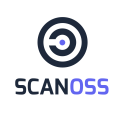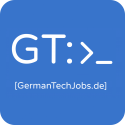Eclipse Muto serves as an adaptive framework and orchestrator for dynamically composable ROS software stacks, making it suitable for autonomous vehicles and robots. By utilizing lightweight models that represent the composition of ROS constructs such as nodes, topics, and services, Muto enables dynamic reconfiguration and modification of the ROS runtime environment. The recent updates to Muto encompass significant enhancements, including improved features and the establishment of a more robust and maintainable infrastructure, along with ROS2 support.
During this presentation, we will demonstrate the latest Muto features through an industrial use-case, focusing on the efficient management of the lifecycle of autonomous logistics vehicles. Specifically, we will cover the following aspects:
- ROS2 Support and Capabilities: We will showcase the new ROS2 support provided by Muto, which unlocks enhanced capabilities for seamless integration with ROS2 Managed Nodes. This enables the provisioning, preparation, activation, and deactivation of nodes and their related parameters using a well-defined interface that adheres to a known lifecycle state machine.
- Tool Support: We will emphasize the availability of comprehensive tool support within Muto. This empowers users to leverage Muto plugins effectively, showcasing an example of integrating with alternate digital twins and edge-middleware, such as Eclipse Chariott.
By attending this presentation, participants will gain valuable insights into the latest advancements in Muto, witnessing its practical implementation in an industrial use-case scenario. They will discover how Muto's features contribute to the seamless orchestration and management of autonomous logistics vehicles within the ROS ecosystem, while also exploring the possibilities of integrating Muto with other technologies from the Eclipse SDV ecosystem, such as the ROS2 SDV Bridge.

















